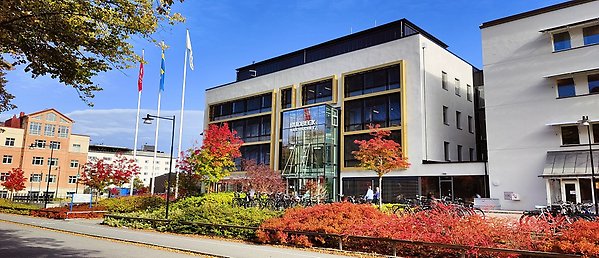[The Svedberg seminar] – Global mapping of protein subcellular location offers a new era of comparative and evolutionary cell biology.
May 8 @ 15:15 – 16:15 CEST
Ross Waller , Professor of Evolutionary Cell Biology
Department of Biochemistry
University of Cambridge, UK
Bio
Ross Waller completed a PhD in 2000 at the University of Melbourne working on the newly discovered remnant plastid in apicomplexan parasites Plasmodium and Toxoplasma. He undertook postdoctoral training from 2000-3 as a Peter Doherty Fellow working on Leishmania cell biology (University of Melbourne), and then from 2003-5 as a Canadian Institutes of Health Research working on molecular evolution in diverse eukaryotes at the University of British Columbia. In 2005 be joined the faculty of the School of Botany, University of Melbourne, and in 2013 relocated his laboratory to the Department of Biochemistry, University of Cambridge.
Global mapping of protein subcellular location offers a new era of comparative and evolutionary cell biology
Most of the diversity of eukaryotic life is represented by unicellular organisms, and most of this has diverged from well-studied model organisms by over a billion years of evolution. Consequently, while core eukaryotic cellular and molecular biology is often conserved, this represents only a small fraction of the molecular diversity, organisation, and function of most cells. This, in turn, severely constrains our ability to infer the biology of most of eukaryotic life from the better-studied models such as animals and fungi. To address the need for de novo characterisation of cells’ molecular diversity we use a spatial proteomics method called LOPIT that simultaneously captures the steady-state subcellular locations of thousands of proteins. We use these new cellular blueprints as springboards to study the evolutionary processes, adaptations and trajectories that have contributed to eukaryotic cell diversity, with particular focus on understanding the apicomplexan parasites and their close algal relatives the dinoflagellates.
Host: Fabien Burki, UU fabien.burki@ebc.uu.se

